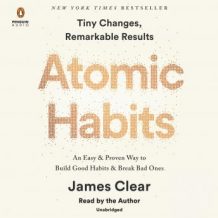How The Other Half Learns: Equality, excellence, and the battle over school choice Audiobook
How The Other Half Learns: Equality, excellence, and the battle over school choice Audiobook
- Robert Pondiscio
- Penguin Audio
- 2019-09-10
- 11 h 34 min
Summary:
An inside take a look at America’s most controversial charter institutions, as well as the moral and political questions about public education and college choice.
The promise of public education is excellence for everyone. But that promise has rarely been held for low-income children of color in America. In How the Other Half Learns, instructor and education journalist Robert Pondiscio targets Achievement Academy, the network of controversial charter institutions in New York City founded by Eva Moskowitz, who has created about how exactly The Other Half Learns: Equality, brilliance, and the battle over school choice something unprecedented in American education: a way for large numbers of engaged and ambitious low-income groups of color to obtain an education for their children that equals and even exceeds what wealthy families take for granted. Her email address details are astonishing, her methods unorthodox.
Years of well-intended efforts to really improve our institutions and close the ‘accomplishment gap’ have collection equity and superiority at war with one another: If you are wealthy, using the means to pay out private school tuition or move to an affluent community, you may get your child into a fantastic school. But if you’re poor and dark or brown, you must settle for ‘collateral’ and a lecture–about fairness. About the necessity to show patience. And about how school choice for you only damages public schools for everybody else. Thousands of parents possess chosen Success Academy, and hundreds more sit on waiting lists to enter. But Moskowitz herself admits Achievement Academy ‘can be not for everybody,’ which raises uncomfortable questions we’d rather not really ask, let alone answer: What if the price tag on offering a first-rate education to kids least more likely to receive it means acknowledging that you can’t do it for everyone? What if some complications are just too much for schools only to solve?






